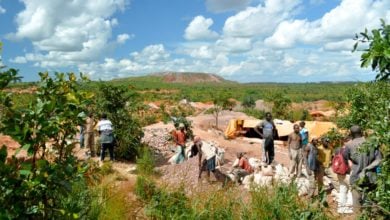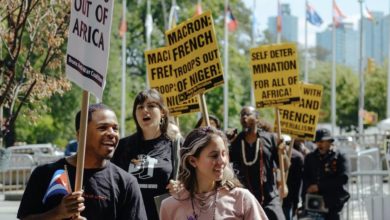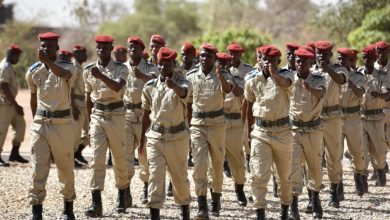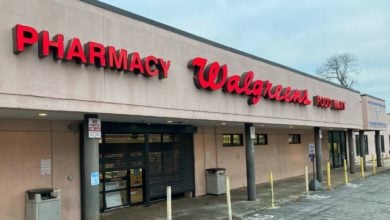Recently, Nigeria’s Economic and Financial Crimes Commission indicted former U.S. Vice Pres. Dick Cheney for a bribery plot involving Halliburton Co. Cheney was the company’s CEO at the time of the incident. Halliburton allegedly paid $180 million in bribes to Nigerian officials to win a contract to build a multi-billion-dollar natural gas plant in Nigeria’s oil-rich southern delta. The charges against Cheney come against the backdrop of a heightening political struggle inside Nigeria over the economic future of the country and its relationship with the United States.
 Former Vice Pres. Dick Cheney |
The ruling People’s Democratic Party which manages the EFCC is a right-wing political party with exceptionally close ties to the U.S. financial and military establishment. In truth, the EFCC actions against Halliburton were part of a desperate response by the ruling party to quell growing unrest ahead of national elections next year. Although the U.S.-backed PDP is the only viable political organization crossing ethnic, religious and regional lines in Nigerian electoral politics, there are signs that its dominance is weakening.
Since gaining independence from British colonial rule in 1960, Nigeria has undergone several political transitions, including military and civilian regimes. However, none of these regimes have been able to radically alter the colonial characteristics imposed on the country by the British and maintained today via world imperialism.
The British left behind a political framework designed to guarantee the flow of resources from Nigeria to advanced capitalist countries. By establishing a political order where rival ethnic and religious groups compete for economic gains, the colonizers hoped to prevent a unified resistance to imperial rule. Since independence, rival factions in Nigeria have jostled to gain a small slice of the economic pie generated by the nation’s vast resources—while the biggest slice of the pie is plundered by imperialism. These conflicts have manifested as coups, internal wars and state corruption.
When Nigeria made a transition from military dictatorship to multi-party “democracy” in 1999 led by the PDP, many Nigerians hoped for a profound transformation of the inherited system. But this change never happened. After a handful of elections were won handily by the PDP, the system remains intact as economic life continues to decline for most Nigerian people.
The most recent U.N. Human Development Report ranked Nigeria near the very bottom in the areas of health, literacy level, income and standard of living. At the same time, Nigeria’s enormous oil reserves made it among the 10 fastest growing economies in the world.
There is a sharpening social divide in Nigeria between elites who use their political positions to benefit from capitalist development under a client state and the majority of Nigerian people who remain poor, unemployed and dispossessed from their lands. Popular demonstrations are starting to transcend ethno-religious and regional boundaries and are taking on an increasingly national character against bribery and theft by leaders who act as agents for imperialist corporations and militaries.
The PDP led the creation of the EFCC in 2003 to co-opt the growth of a potential nationalist resistance movement against their comprador links with oil companies and investors. The PDP strategically defines the problem of corruption as stemming from the immoral behavior of a few “bad apples”—individual corporations or opposition politicians—to avoid the fact that the system itself is a corrupting force in society.
The patronizing mission of the EFCC to “imbue the spirit of hard work in the citizenry and discourage ill gotten wealth” is totally in line with the PDP’s ideology as a capitalist and socially conservative organization. In 2008, Nuhu Ribadu, the former anti-corruption chief of the EFCC, was fired by the PDP after he began investigating top officials from the ruling party. Many Nigerian commentators saw this as retribution for his harsh pursuit of party insiders.
This year, Ribadu announced his intention to run for president with a main opposition party against PDP incumbent Goodluck Jonathan. The popularity of his candidacy has made it clear that the Nigerian people view corrupt ties between the Nigerian state and multinational corporations as an important issue in the election.
In addition, new Wikileaks cables reveal that Shell Oil Company spied extensively on key decision-makers in Nigerian government ministries. According to the leaked cables, Shell Oil exchanged intelligence with the U.S., in one case providing them with the names of Nigerian politicians it suspected of supporting militants.
Regardless of the outcome of next year’s election, it is likely that a long-term national struggle is underway in Nigeria. Nigerians of every ethnicity and religion are recognizing that as long as the governing power in their country continues to represent the interests of multinationals and investors over the working majority, the country will continue to be a victim of oppression and super-exploitation.
Indications are that in the coming months political struggles will likely intensify in Nigeria, possibly opening the door for a sweeping national and democratic transformation which will deal with the political and socio-economic manifestations of colonialism. The misery of the majority of Nigerians is the direct result of the plunder of Nigeria’s resources by the United States and other imperialist countries.
Progressives and revolutionaries in the United States should be prepared to help defend Nigeria from U.S. intervention should a transformational people’s struggle escalate.





